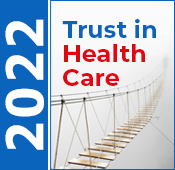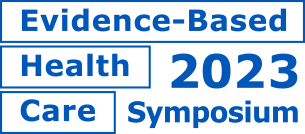13. International EBHC Symposium 2018
Integrated health care - exploration beyond the HTA
Krakow, 8-9 October 2018
13. International EBHC Symposium entitled Integrated health care – exploration beyond the HTA took place in Krakow on October 8th-9th 2018 in Holiday Inn Kraków hotel.
A hand-picked panel of experts from Poland and other countries presented the results of their studies and suggested proposals of solutions in 6 sessions:
- International cooperation on HTA – is it possible to develop supranational solutions?
- From integrated care to value based health care
- Medical devices – value-based health care
- Patient's informed opinion and its impact on health care decisions
- Systemic solutions – opportunities and challenges
- The strength of scientific evidence - is RCT always necessary
Ze względu na szczególny walor edukacyjny wstęp na wykład otwierający oraz sesję nr 1 był bezpłatny. Chcemy w ten sposób zachęcić do udziału w niej tych, którzy nie mogą wziąć udziału w całym Sympozjum – studentów oraz kolegów ze środowisk naukowych.
Integrated care is often presented as the opposite of fragmentary and episodic care. The term integrated care is used synonymously to terms such as coordinated care or seamless care. This broad range of terms is telling enough to suggest that a uniform definition or common understanding of the concept has not been clarified yet. For different participants of the health care system, integrated care will have different scopes or meanings resulting from their perspectives: the way relationships, needs and possibilities, as well as previous experience, are perceived.
One of the earliest uses of the concept of "integrated care" and attempts to define it date back to the year 2000. The text Integrated and fragmented care observed from two case studies incorporated the phrase "integrated care" in the context of comprehensive care of a patient – in that case, a senior citizen – with emphasis on restoring humanity by facilitating access to very simple (and cheap) forms of assistance (e.g. fitting facilities in patients’ homes). Before that, such procedures were implemented in the USA for the purpose of caring for the ageing population of war veterans. Since then, the phrase "integrated care" has become very popular. In the face of the progressive complexity of health systems, opinions have been voiced to extend the concept of integrated care to all patients. It seems particularly desirable to improve the possibility of receiving benefits smoothly in various centres to maintain the right course of therapy, avoid unnecessary costs and relieve patients from having to plan their own proper course of diagnostics and therapy. Another important issue is the financing of the recommended benefits, as the majority of patients have no idea what benefit baskets are – they do not know what thy are entitled to and when, nor for what do they need to pay out of pocket.
From the point of view of the health care system, integrated care should help in the following areas:
- Creating a uniform patient information system
- Solving the issue of financing services provided by various centres in one case
- Limiting the duplication of administrative procedures
- Avoiding unnecessary tests
- Preventing contradicting diagnoses
- Reducing stress, disorientation and the feeling of being left to one’s own devices among patients
- The way to build a value-based health care system
From the patients’ point of view, they are to receive a recovery map and a guide to lead them along this difficult trail.
It seems simple, but after years of exploring the economic aspects of the health care system, constantly measuring the effectiveness of procedures and the belief that money is a remedy for everything, we have to get out from behind our desks and look at health care through the patients’ eyes. It may turn out that assessing what is most important to them, and especially what the items on the list of their priorities are, will not be easy. After years of assessing health technologies and honest faith in evidence, we may find it difficult to work on something which cannot be translated into measurable effects. It is as if we were to leave behind everything which is certain and constant, which was the meaning of our work and set out to explore new, uncharted territories.
We've met at the 13th EBHC Symposium, this time to fly away beyond HTA and to see where we land after those two days.
Partners
13. International EBHC Symposium 2018
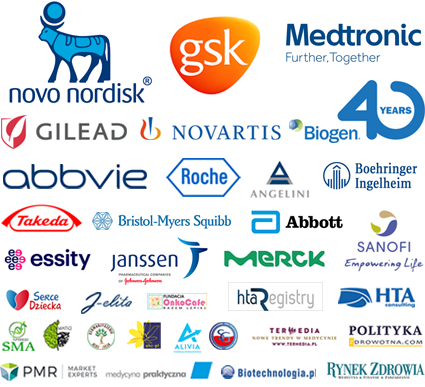
Speakers
13. International EBHC Symposium 2018
Biogram notes
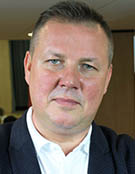
President of the Polish Functional Rehabilitation Centre VOTUM S.A. Manager of the Healthcare Entity of the Polish Functional Rehabilitation Centre VOTUM S.A. implementing a health care programme for the treatment and rehabilitation of adult comatosed patients within the NFZ system. Vice-President of the Polish Chamber of Physiotherapists Chairman of the budgetary team of the Polish Chamber of Physiotherapists. He has been a professor at the University of Physical Education in Cracow at the Department of Rehabilitation in Neurology and Psychiatry for many years. A physiotherapist with over 20 years of professional experience in rehabilitation of patients with multi-organ traumas, in particular with craniocerebral traumas. He participated in numerous internationally recognised courses, among others on neurological rehabilitation. Member of international associations and organisations. Speaker at academic conferences and author of articles on neurological rehabilitation. top
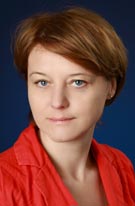
dr hab. Małgorzata Bała
Kierownik Ośrodka Przeglądów Systematycznych Polskiej Filii Cochrane oraz Kierownik Katedry Epidemiologii i Medycyny Zapobiegawczej Uniwersytetu Jagiellońskiego Collegium Medicum w Krakowie.
Od 2005 roku prowadzi zajęcia z Evidence Based Medicine dla studentów Wydziału Lekarskiego, Szkoły Medycznej dla Obcokrajowców i studentów studiów EuroPubHealth. Z Cochrane Collaboration współpracuje od 2000 roku, jest autorką i współautorką kilku przeglądów Cochrane.
Jej zainteresowania badawcze skupiają się wokół Evidence Based Medicine, szczególnie przeglądów systematycznych oceniających skuteczność różnych interwencji terapeutycznych, a także aspekty metodologiczne badań klinicznych oraz wytycznych postępowania i wdrażania ich zaleceń do praktyki klinicznej.
Jest także współautorką rozdziałów w podręczniku pt. “Podstawy EBM, czyli medycyny opartej na danych naukowych dla lekarzy i studentów medycyny” (2008).
W ramach Cochrane jest Dyrektorem Cochrane Polska, współpracuje z Cochrane Tobacco Addiction Groups, Cochrane Renal Group, Cochrane Hepatobiliary Group, Cochrane Skin Group, Cochrane Stroke Group i Cochrane Vascular Diseases Group.
top
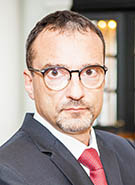
Wiceminister Zdrowia
Inicjuje, koordynuje i nadzoruje wykonywanie zadań przez Departament Polityki Lekowej i Farmacji. Nadzoruje działalność Administratora Systemu Monitorowania Wypadków Konsumenckich. Nadzoruje działalność Narodowego Instytutu Leków w Warszawie. Jest profesorem Politechniki Warszawskiej, absolwentem Wydziału Lekarskiego Akademii Medycznej w Warszawie. Posiada 2 specjalizacje: w zakresie epidemiologii oraz zdrowia publicznego. Ukończył program Master of Business Administration (International MBA) w Szkole Biznesu Politechniki Warszawskiej, Studium Ekonomiki Zdrowia na Wydziale Ekonomicznym Uniwersytetu Warszawskiego, Wydział Inżynierii Produkcji Politechniki Warszawskiej w zakresie programu studiów doktoranckich w dziedzinie zarządzania, odbył staże i szkolenia zagraniczne m.in. w York University, University of Liverpool w Wielkiej Brytanii, McMaster University w Kanadzie. Jest wykładowcą w Szkole Biznesu Politechniki Warszawskiej, współpracuje z Wydziałem Zarządzania Uniwersytetu Warszawskiego, przez 9 lat pracował jako adiunkt w Zakładzie Farmakoekonomiki Wydziału Farmaceutycznego Warszawskiego Uniwersytetu Medycznego. Od 10 lat jest członkiem Zarządu Polskiego Towarzystwa Farmakoekonomicznego, pełniąc w przeszłości rolę Prezesa, a obecnie Prezesa-elekta tej organizacji. Aktywnie działa w międzynarodowym towarzystwie naukowym International Society for Pharmacoeconomics and Outcomes Research. Jest członkiem założycielem oraz członkiem władz Polskiego Towarzystwa Opieki Koordynowanej. Brał udział w tworzeniu wytycznych oceny technologii medycznych AOTMiT. Jest autorem ponad 200 prac i doniesień z dziedziny zarządzania, ekonomiki zdrowia, farmakoekonomiki i jakości życia, publikowanych zarówno czasopismach zagranicznych jak i polskich. Był promotorem ponad 100 prac magisterskich i dyplomowych, jest członkiem grup roboczych (m.in. Polskiej Akademii Nauk), rad redakcyjnych oraz naukowych czasopism specjalistycznych, pełni rolę recenzenta prac badawczych (m.in. jako ekspert Narodowego Centrum Nauki), prac doktorskich i książek, artykułów naukowych, brał udział w realizacji grantów naukowych m. in. pochodzących z Unii Europejskiej. Pracował w międzynarodowym środowisku biznesowym i doradczym odpowiadając za kwestie związane ekonomiką zdrowia oraz Real World Evidence. Został uhonorowany nagrodami JM Rektora Warszawskiego Uniwersytetu Medycznego, w tym nagrodą indywidualną naukową pierwszego stopnia, nagrodą JM Rektora Politechniki Warszawskiej za program edukacyjny oraz nagrodą “Best and Brightest” firmy PwC. top
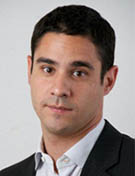
Managing director, Ideas & Solutions (I&S), research leader, Corvinus University of Budapest Dávid Dankó is managing partner of Ideas & Solutions (I&S), an independent research and consultancy firm which provides health policy and market access advisory services to health insurance organizations and pharma and medical device companies with a focus on emerging and middle-income markets. Dávid has 15 years of experience in health care management & the funding of pharmaceuticals and medical devices. Until 2010 he was member of the executive team for pharmaceutical reform in Hungary as Deputy Director of Reimbursement at the national health insurance fund. Previously he also held a position as research leader at the Corvinus University of Budapest. He speaks regularly at conferences and workshops on pharmaceutical and medical device policies, gives payer communication and negotiation trainings to multinational companies and authorities, and participates at international advisory boards. Focuses:
- Pricing of targeted onco-hematology medicines
- Pragmatic value assessment and HTA systems for middle-income markets
- Designing managed entry agreements and linking them to value assessment
- Negotiations and communication with payers and other governmental stakeholders
- Alternative funding strategies for middle and low-income countries
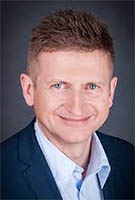
Jaroslav founded OAKS Consulting s.r.o. in 2009, after more then 15 years of experience in top management positions in Wyeth, Zentiva and Glaxo. OAKS Consulting has became in short time the leading consulting company providing full scope of services in Market Access in Czech Republic. The team currently consists of 15 specialists with professional background in medicine, pharmacology, mathematical modeling and health-economy. top
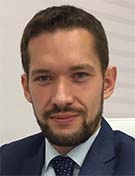
Director of the Healthcare Services Department at the Agency for Health Technology Assessment and and Tariff System (AOTMiT). He graduated from the Faculty of Pharmacy at Jagiellonian University Medical College (CMUJ) in Cracow (2002) and the post-graduate programme: MBA for Medical Personnel at the Kozminski University in Warsaw (2010). Doctoral Student at the Warsaw School of Economics (SGH). His work experience includes teaching at universities on subjects related to pharmaceutical law, pharmacoeconomics and organisation of the healthcare system. He has also worked as reimbursement director in national and central structures in the pharmaceutical industry and as an analyst and specialist in projects regarding access to medical care and quality management. President of the technical unit in the Fair and Affordable Pricing project, implemented within the Visegrad Group, a member of the Executive Committee of the POINTer project dedicated to the system of quality indicators. At the AOTMiT he is responsible for i.a. projects related to transformation of the guaranteed services system, with focus on medical rehabilitation, coordinated care and issues concerning clinical practice guidelines. top
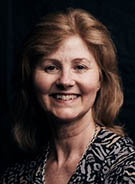
Karen has a PhD in Statistics and has worked as a senior statistician in pharmaceutical companies and the MHRA, the UK medicines regulatory agency. In 2000 she was founding Chief Executive of the first national health technology assessment (HTA) Agency in Scotland and since 2003 has been an independent consultant on HTA and patient involvement, working with all stakeholders. She has been a board member of a health board (payer/provider) in Scotland and is a member of the Scottish HTA appraisal committee for non-medicines HTA. She holds a part-time research post at the University of Edinburgh working in the H2020 project, IMPACT HTA, to develop an appraisal framework for medicines for rare diseases. Karen is lead editor on the book about patient involvement in HTA published by Springer in May 2017 and in 2014 she was named in the top 100 practising scientists in the UK. top
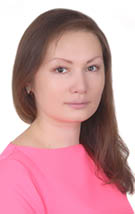
Head of HTA department of Republican Center for Health Development of the Ministry of Health of the Republic of Kazakhstan. She graduated from the Kazakh National Medical University in Almaty. She has a PhD in Public Health. When she started work at RCHD her main activity were promoting EBM and developing clinical practice guidelines. She is a co-author of several national CPGs and clinical protocols. Since 2016, her responsibility in RCHD has become conducting HTA on national level in order to support decision-making process trough providing an evidence based information for policy-makers in Kazakhstan. She is a Member of HTAi and participated HTAi and INAHTA Annual Meetings in 2017-2018. top
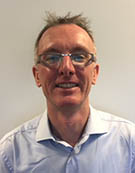
Healthcare Economics, Health Policy & Reimbursement, Medtronic Australasia, Sydney Dr Gillespie received his PhD from the University of Dundee, Scotland and continued his research on protein phosphorylation and metabolic control at the University of Edmonton, Canada. After moving to Sydney, he changed careers - moving into the field of healthcare economics. Dr Gillespie spent several years in consultancy where his main responsibility was conducting health technology assessments (HTA) of new medical technologies and procedures for the Australian Department of Health and Ageing. Since joining Medtronic his responsibilities have included health economics and reimbursement projects for cardiovascular and neurovascular technologies. His main area of responsibility is once again HTA of new medical technologies and procedures. He is particularly interested in how HTA needs to change to remain relevant when medical technologies, healthcare practice and evidence are continuously evolving. top
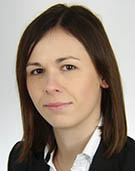
Graduated from the Faculty of Health Protection, Collegium Medicum, Jagiellonian University for public health, completed doctoral studies. She started her professional career from the beginning with the Department of Health and Social Policy of the Marshal Office of the Malopolska Region in Cracow, where she started work in 2004. She implemented solutions aimed at popularizing health prevention and shaping the model of health care tailored to Małopolska needs. Initiator of Malopolska Days of Health Prevention. Currently, as Director of the Department, he is involved in the development of a regional health care system that improves the health and quality of life of patients. top

In 1997, she became the first patient in Poland to receive a bone marrow transplant from an unrelated donor. That surgery, groundbreaking in the history of Polish medicine, was performed in the Department of Haematology of the Medical University of Silesia in Katowice, by Prof. Jerzy Hołowiecki with the team. It was the experience of fighting for her own life that inspired her to create a foundation which, since 1997, has been actively helping patients suffering from cancer, leukaemia, MS, hepatitis C, multiple myeloma, brain cancer; it develops a bone marrow donor bank, organises educational and information initiatives in the media, as well as pro-patient changes in the health care system. For many years, the organisation was also the largest Bone Marrow Donor Bank in Poland in terms of the number of registered people. It is thanks to the personal devotion on the part of Urszula Jaworska and the entire foundation team that the idea of bone marrow donation became so popular in Poland. The foundation's register currently has over 11,000 bone marrow donors. Despite numerous duties, she tries to combine work in the foundation with supporting other organisations, including OFOP and other patient associations. For several years, she has been active under the office of the Commissioner for Patients' Rights as a Member of the Social Council of the Commissioner for Patients' Rights. She was ranked 38th in Puls Medycyny's 2017 list of the 100 most influential people of the Polish health care system. Since February 2018, she has participated in the work of the Health Committee of the Polish Chamber of Commerce. She is a graduate of the National Ballet School in Warsaw and a student of the Fryderyk Chopin University of Music in Warsaw in the Department of Ballet Pedagogy. She is a dancer and a soloist, as well as the manager of many significant ballet ensembles, including: Syrena, Sabat, Mazowsze. In 1994, she was diagnosed with leukaemia. As the first patient in Poland to ever receive a bone marrow transplant from an unrelated donor, she became the Founder of the Urszula Jaworska Foundation. She actively participates in organising activities aimed at broadly understood assistance offered to patients with leukaemia, other cancers and chronic diseases. She attaches great importance to raising social awareness regarding cancer. top
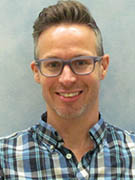
Dr. Bradley Johnston (PhD) is the director and co-founder of NutriRECS (www.nutrirecs.com), and is an Associate Professor with the Department of Community Health & Epidemiology, Faculty of Medicine, Dalhousie University, Halifax, Canada. He also holds adjunct appointments with The Hospital for Sick Children (SickKids) Research Institute, where he founded the SickKids evidence synthesis unit (SORT - Systematic Overviews through advancing Research Technology), and the Department of Health Research Methods (formally Clinical Epidemiology & Biostatistics), McMaster University, where he is a tutor in the annual Evidence-Based Clinical Practice Workshop. Dr. Johnston is an Associate Editor with BMC Medical Research Methods. Dr. Johnston’s academic interests include the methodology of patient-reported outcome measures, randomized trials, systematic reviews and public health practice guidelines. His work involves the application of these methods to a wide range of areas, with a particular interest in the education, principles and practice of evidence-based nutrition. He has published over 100 peer-reviewed articles, including first and senior authored articles in JAMA, Annals of Internal Medicine, CMAJ and Pediatrics. top
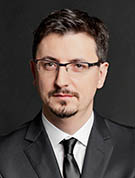
Doctor of medical science, Director of National Institute of Public Health – National Institute of Hygiene. Since 2003 he is the scientist at Public Health Department at Warsaw Medical University. He co-operated with Medicover and LUX MED Groups, where he was responsible for planning and implementing health-benefited activities at work place. In LUX MED Group he leaded Health Education Office. He represented the Polish employers at the Advisory Committee of European Commission in relation to Health and Safety at work place. top
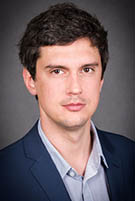
Health Technology Assessment Director in Oaks Consulting in Prague and a Ph.D. student in the Oncology Departments at the Medical Faculty at Charles University. His main focus is on Market Access of new Health Technologies, HTA and Real-World Evidence. top
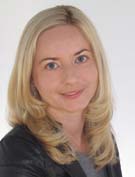
Expert in health technology assessment and health economics. For ten years she has been specialising in quality assessment (audits) of analyses included in HTA reports. Author and co-author of systemic studies in healthcare and scoping aiming at determining the directions and scope of analyses required for reimbursement and pricing purposes. Partner in HTA Audit and HTA Registry. Active instructor in the fields of EBM, HTA and Pricing in public institutions and the pharmaceutical industry. top
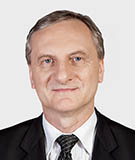
Undersecretary of State at the Ministry of Health
Former Deputy director of the Agency for Medical Technology Assessment and an adjunct professor at the Institute of Public Health of the Jagiellonian University. From 2009 to 2011 he was on the board of Pfizer Polska sp. Z oo. Then he was the director of the Drawski Specialist Center (2012-2013) and the Specialist Hospital. S. Żeromski SPZOZ in Cracow (2013-2016). He is an honorary member of the College of Family Physicians in Poland. In his account he has, among others. Delegation of the Baltic Sea Task Force (later Northern Diamension) Experts Group for Primary Health Care and EQUIP - European quality workshop group. He was also an expert on the World Health Organization and the World Health Organization, as well as the project manager for the Data for Decision Makers project (Harvard-Jagiellonian Consortium for Health). top
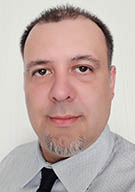
Dušan Krstić
Regional Sales Manager at EBSCO Information Services, a graduate of the University of Kragujevac (Serbia) with post graduate studies in Microbiology and Molecular Oncology at Masaryk University (Czech Republic). Since 2008, he was working is the medical field, specializing in technologies for Dermatology, Rehabilitation and Oncology. From 2017, he is managing Medical and Corporate market in Central and North-east Europe and CIS Countries, in EBSCO Information Services – world’s leading aggregator of medical and scientific literature. His primary aim is to provide access to evidence based medical information and primary medical, scientific and business literature to healthcare development organizations, healthcare professionals and companies operating in any field of healthcare for improvement of healthcare services, medical technologies and medical products development, assessment and vigilance. top
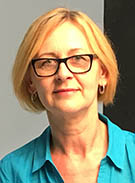
Prezes Fundacji Onkocafe – Razem Lepiej. W 2010 roku wykryto u niej nowotwór piersi. Obecnie zaangażowana jest w szerzenie idei wsparcia międzypacjenckiego oraz poprawy jakości leczenia i życia pacjentów onkologicznych. Fundator, załozycielka i Prezes Fundacji OnkoCafe – Razem Lepiej, która stawia sobie za cel pomoc pacjentom oraz ich rodzinom w oswajaniu lęku, zwłaszcza na początku choroby (tuż po diagnozie), a także w trakcie terapii i po zakończonym leczeniu onkologicznym. Autorka poradników dla pacjentów i ich bliskich. Prowadzi audycję “o raku przy kawie” w Radiu RPLFM. top
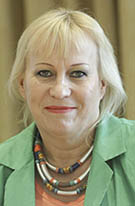
Rheumathologist, Deputy Director for Clinical Affairs at the National Institute of Geriatrics, Rheumatology and Rehabilitation in Warsaw, Chairperson of the National Council of Rheumathology, Secretary of the Warsaw unit of the Polish Rheumatology Association. Dr. Kwiatkowska's academic interests include the diagnosis and treatment of rheumatic diseases. She conducts multi-directional work thus contributing to other medical disciplines related to rheumatic diseases. She promotes the use of modern diagnostic techniques in diagnosing rheumatic diseases and introduces the latest available therapeutic methods. Her academic achievements comprise 46 publications: 12 original full-text scientific papers, 26 review articles, 4 case reports, 11 textbook chapters, including 2 chapters to an international textbook (published in English), 2 editorial commentaries. She is the first author of the majority of the papers, playing the leading role in the creation of the concept, development of the results and preparation for print. In addition, she has published 15 congress reports in supplements for Polish and foreign scientific journals. top
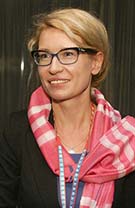
Maria Libura
Head of the Department of Medical Education and Simulation, Collegium Medicum of the University of Warmia and Mazury. Health expert of the Jagiellonian Club. Vice President of the Polish Society of Medical Communication. Author of publications on rare diseases and communication in health care. Chairwoman of the Polish Association of Assistance to the Prader-Willi Syndrome. top
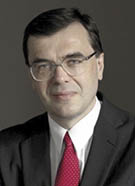
He graduated from the Faculty of Medicine of the Nicolaus Copernicus Medical Academy in Cracow in 1988. Specialist in internal medicine, diabetology, laboratory diagnostics and endocrinology. In 1998, he defended his PhD thesis entitled "Searching for genes predisposing to type 2 diabetes in chromosome 20q" with honours at the Jagiellonian University Medical College. The thesis was awarded the Aurelia Baczko Award from the Polish Foundation for the Promotion of Science of the Society for Supporting Sciences for the best doctoral dissertation in the field of non-surgical clinical medicine. In 2004, he received a postdoctoral degree after submitting his dissertation entitled "Molecular basis of type 2 diabetes – selected pathogenetic and clinical issues". In 2009, he received the Professor title. Between 1993 and 2000, he worked as an assistant at the Department of Metabolic Diseases of the Jagiellonian University Medical College; in 2000, he became an adjunct there; in 2008 he became the dean of the department – as an associate professor since 2009 and, since 2013, as a professor of the Jagiellonian University. Between the years 1996 and 1999 he was a scholar at the Joslin Diabetes Center in Boston, affiliated with the Harvard Medical School. His scientific interests include the genetic background of monogenic and type 2 diabetes, as well as clinical research in diabetes, especially related to pregnancy. He is the author and co-author of around 180 scientific articles, including 150 original works; his works have been quoted over 3000 times until the year 2017 (IF of about 600, 26 in the Hirsch index). He has been a member of the General Board of the Polish Diabetes Association (since 2007) and the President of the Association since 2015. He was a board member of the European Society of Clinical Investigation. He is a member of the European Association for the Study of Diabetes, and an EASD expert on etiological diabetes. He participates in the works of the EASD Study Group on the Genetics of Diabetes. In 2001, he received an award from the Polish Diabetes Association for his achievements in the field of diabetology, and in 2005, he was invited to give a lecture under the auspices of Jakub Węgierko during the Polish Diabetes Association Conference. For his outstanding scientifical achievements, he was recognised with an award of the Prime Minister (2006) and also received a team award from the Minister of Health (2009). In 2013, he received a Browicz Award from the Polish Academy of Learning, and in 2014 he received a Jagiellonian Laurel and a Śniadecki Award from the Polish Academy of Sciences. He has been a member of the Polish Academy of Learning since 2017. He is a reviewer in Endocrine Review, Diabetes, Diabetes Care, Diabetologia, Diabetic Medicine and several Polish journals and also an editor in the European Journal of Clinical Investigation and Diabetologia Praktyczna. He is an EU expert in the evaluation of scientific projects within the FP6, FP7 and Ideas programmes. He has published articles in world-leading scientific journals, including Nature Genetics, Nature Clinical Practice Neurology, New England Journal of Medicine, Diabetes, Diabetologia, Diabetes Care, Stroke, Neurology and others. Between the years 2008 and 2012, he was a deputy dean for organisation and curriculum at the Faculty of Medicine of the Jagiellonian University Medical College; between 2012 and 2016 he was the Jagiellonian University dean's proxy for research and development at the Jagiellonian University Medical College. Since 2016, he has been the Dean of the Faculty of Medicine of the Jagiellonian University Medical College. top
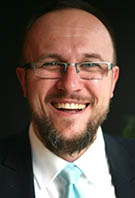
Piotr Merks, PhD (Pharmacy), is the chairman of Piktorex Sp. z o.o. and has over 16 years of experience in the pharmaceutical industry. He is an expert on the implementation of the Falsified Medicines Directive (FMD), innovative projects and designing new pharmaceutical services, a lecturer at the Nicolaus Copernicus University in Toruń and Collegium Medicum in Bydgoszcz, and a winner of many pharmaceutical awards in Poland and abroad. He has international experience in various sectors: research facilities, governmental and non-governmental bodies, commercial companies, hospitals, pharmacies. He has worked in the pharmaceutical industry in the UK for over 10 years. His career path has also led him to Australia, Canada and Finland, where he had the chance to learn about other pharmaceutical markets in practice. He belongs to many branch organisations, such as the British Royal Pharmaceutical Society (RPS), the International Pharmaceutical Federation (FIP), the European Association of Employed community Pharmacists in Europe (EPHEU), the British Pharmacists’ Defence Association (PDA). He is a member of the District Council of the Pharmaceutical Chamber of Warsaw and the Polish Pharmaceutical Chamber (the Department of Foreign Cooperation). He actively works to improve public health and the safety of medicines and to eliminate falsified medicines from retail trade. He is the inventor and the coordinator of the pharmaceutical tool Lekolepki. He is the author of various projects and publications, and a participant of international conferences. top
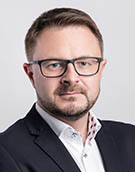
Piotr graduated from the Jan Kochanowski University in Kielce and the Cracow University of Economics. He is a Market Access Consultant and the Director for Analytical Development in HTA Consulting. He specialises in financing health services, as well as in the field of local self-government health programmes. He is responsible for the development of institutional cooperation in Poland and CEE countries. top
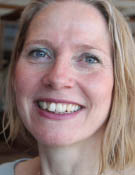
Wija Oortwijn jest stowarzyszona z Wydziałem ds. Dowodów Medycznych na Radboud University Medical Center Nijmegen (Holandia). Studiowała nauki medyczne i posiada tytuł naukowy doktora medycyny (Wyznaczanie priorytetów w ocenie technologii medycznych). Posiada ponad 25-letnie doświadczenie zawodowe w HTA i analizowaniu polityki zdrowotnej. Prowadziła badania dotyczące mapowania poziomu ocen technologii medycznych w krajach na całym świecie oraz była zaangażowana w projekt badawczy INTEGRATE-HTA (www.integrate-hta.eu), mający na celu opracowanie koncepcji i metod umożliwiających zorientowaną na pacjentów, zintegrowaną ocenę skuteczności oraz ekonomicznych, społecznych, kulturowych i etycznych aspektów złożonych technologii, które uwzględniają ich kontekst i wdrażanie. Niedawno zakończyła pracę nad projektem związanym z HTA i podejmowaniem decyzji w 10 krajach z całego świata (publikacja w Value in Health) oraz projektem opisujących stopień dostosowania HTA do wartości i zasad leżących u podstaw systemu opieki zdrowotnej w wybranych krajach. Obecnie opracowuje praktyczny przewodnik dla organizacji zajmujących się oceną technologii medycznych dotyczący wdrażania “dyskusji opartych na dowodach naukowych” (EDPs). EDPs określają wytyczne dla organizacji zajmujących się HTA w celu usprawnienia procesów decyzyjnych. EDPs oparte są na racjonalnym procesie podejmowania decyzji poprzez opartą na dowodach ocenę zidentyfikowanych wartości (odzwierciedloną w wielokryterialnych analizach decyzyjnych – MCDA), a także sprawiedliwe podejmowanie decyzji (wyrażone w podejściu „accountability for reasonableness”– A4R). Jest jednym z założycieli holenderskiego NVTAG oraz International Society for HTA (HTAi), była członkiem zarządu obu towarzystw oraz współprzewodniczącą HTAi/INAHTA Interest Group on Ethics w latach 2011-2017. Obecnie jest członkiem HTAi Scientific Development and Capacity Building Advisory Committee, współprzewodniczącą International Working Group, która zajmuje się aktualizowaniem definicji HTA, jest również współredaktorem w International Journal of Technology Assessment in Health Care. Ponadto jest sekretarzem naukowym w HTAi’s Global Policy Forum: w latach 2016-2017 (w zakresie ram wartości); w latach 2017-2018 (w zakresie horizon scanning) oraz w latach 2018-2019 (w zakresie dowodów rzeczywistych). top
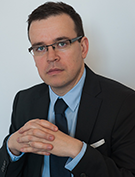
President of HTA Consulting since 2006, he is one of the founders of the company. Robert - master of economy by education (Cracow University of Economics), started his career in the Polish National Centre for Quality Assessment in Health Care. Robert is the author of many publications on HTA and health care and as advisor to the World Bank he participated in projects conducted in Serbia. Robert heads the Economic Analyses Department and carries out projects in Asia and Australia. Calm and common sense are Robert's second nature. top
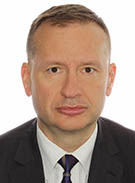
Kierownik Zakładu Diagnostyki Obrazowej Centrum Urazowego Medycyny Ratunkowej i Katastrof Szpitala Uniwersyteckiego w Krakowie oraz profesor nadzwyczajny Katedry Radiologii Wydziału Lekarskiego Collegium Medicum Uniwersytetu Jagiellońskiego. Absolwent Akademii Medycznej w Krakowie. W 2000 roku jako pierwszy w Polsce wykonał procedurę biopsji gruboigłowej piersi wspomaganej próżnią, zarówno pod kontrolą mammografii cyfrowej jak i USG. Jego doświadczenia w tego rodzaju procedurach zostały zaprezentowane w pracy nagrodzonej podczas Zjazdu Cardiovascular and Interventional Radiological Society of Europe w 2001 w Goteborgu. Po raz pierwszy w Polsce zorganizował Seminarium IBUS (International Breast Ultrasound School) – edycja polska 2006 “Diagnostyka obrazowa piersi”. Od 2013r jest zaangażowany w badania związane z badaniem i testowaniem nowatorskiego urządzenia do termografii kontaktowej opartej na technologii pasywnych matryc ciekłokrystalicznych. Stworzył i zredagował pierwszy w Polsce Atlas Termograficzny Raka Piersi, wydany przez PZWL w 2015 r. W zakresie opublikowanych prac autor ponad 100 pozycji, 92 wystąpień na konferencjach zagranicznych i 133 konferencjach krajowych. Zrealizował 4 granty krajowe, 2 zagraniczne oraz 11 projektów statutowych obejmujących zarówno zagadnienia inwazyjnej diagnostyki onkologicznej w zakresie gruczołów piersiowych, jak i metod radiologii interwencyjnej. Przedstawiciel Polskiego Lekarskiego Towarzystwa Radiologicznego. Recenzent dla czasopisma European Journal of Radiology, Polish Journal of Radiology oraz Medycyny Praktycznej. W 2018 r. prof. Tadeusz Popiela razem z prof. Agnieszką Słowik otrzymali nagrodę Prezesa Rady Ministrów za zorganizowanie i koordynowanie systemu leczenia przyczynowego udaru niedokrwiennego mózgu za pomocą trombektomii mechanicznej (CITO) skierowany do mieszkańców Małopolski. W ramach tego systemu leczenie zapewniono ponad 200 chorym. top
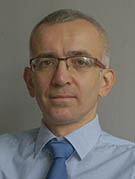
The Clinical Analyses Department's Director in HTA Consulting. A doctor by education, he graduated from Collegium Medicum of the Jagiellonian University and worked in the J. Dietl Specialist Hospital in Krakow and the Krakow University Hospital. Przemysław heads the Clinical Analyses Department and supervises projects carried out in Poland and the rest of Europe. He is the author of clinical and methodical publications as well as a reviewer of scientific journals. He has a great eye for detail and the ability to ask inquisitive clinical and methodical questions. do góry
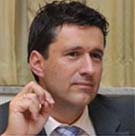
Senior Director Reimbursement & Healthcare Economics, International (Abbott, Belgium). Markus Siebert was named Senior Director Reimbursement & Healthcare Economics of the International Division at St. Jude Medical (now Abbott) in January 2012. He is responsible for the development and execution of reimbursement strategies and for leading the development of health economic evidence in support of Market Access of Abbott innovations in Europe, Asia and Australia. Work with multiple stakeholders, including payers and HTA agencies is of considerable relevance to this work. Markus is currently Chair of the Evidence & Payers Working Group at MedTech Europe (previously Eucomed), the European medical technology association; past Chair of Eucomed Working Groups on Economics and on Telemonitoring; a member of the Cardiovascular Roundtable of the European Society of Cardiology; and company representative on the HTAi Policy Forum. Markus was co-initiator and Board Member of EHTI, the European Health Technology Institute for Socio-Economic Research. Markus joined St. Jude Medical in January 2004 after almost seven years at Eucomed (now MedTech Europe), where he headed the Economic Affairs Department. He holds a Master Degree in Economics from the University of Bochum (Germany) and a Master in Health Economics from VLEKHO, Belgium. top
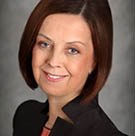
Iwona graduate of the Faculty of Medicine of the Jagiellonian University Medical College in Cracow. She wrote her doctoral thesis in medicine and completed MBA studies with a specialisation in the field of Health Technology Management. For over 20 years her focus has been on healthcare systems, pharmacoeconomics, health technology assessment and drug pricing. She is a member of HTAi, ISPOR, PTFE. top
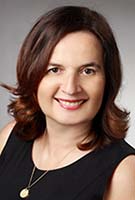
Head of the Department of Neurology and the Neurogenetics Facility at the Collegium Politicum of the Jagiellonian University. She is also the head of the Centre of Interventional Acute Stroke Therapy (CITO) at the University Hospital in Cracow. She is a member of the Committee of Medical Sciences of the Cracow branch of the Polish Academy of Sciences (PAN), the Committee of Neurological Sciences of PAN, and the Scientific Council of the Institute of Pharmacology of PAN in Cracow. She belongs to the European Stroke Organisation, the American Neurological Association and the American Neurological Academy. Since 2008 she has belonged to the International Stroke Genetics Consortium and is now a member of this organisation's Steering Committee. As part of the consortium, she conducts research centred on the search for genetic risk factors for various etiologies of stroke. Many of these studies are published in leading scientific journals, e.g. Nature Genetics, Lancet Neurology or American Journal of Human Genetics. Her scientific interests include the issues of pathophysiology, clinic and stroke therapy and other age-related nervous system diseases. She is the author of over 150 papers in this field and has been quoted over 3400 times. She has obtained 12 national scientific grants and 15 international ones. She has won 10 scientific awards, including two awards from the Polish Academy of Sciences, two from the Minister of Health and three from the Minister of Science. In 2018, Prof. Agnieszka Słowik, together with Prof. Tadeusz Popiela, has received the Prime Minister's award for organising and coordinating a system of causative treatment of ischemic stroke via mechanical thrombectomy (CITO), addressed to the residents of Małopolska. As part of this system, 200 patients were treated using mechanical thrombectomy. top
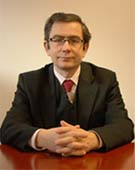
Uzyskał tytuł doktora nauk o zdrowiu, na Wydziale Nauk o Zdrowiu Uniwersytetu Medycznego w Łodzi. Zastępca Dyrektora Departamentu Analiz i Strategii Centrali NFZ, wykładowca na Akademii Humanistyczno-Ekonomicznej w Łodzi. W latach 1987-2005 pracował i pełnił kierownicze funkcje w Państwowym Przedsiębiorstwie Zaopatrzenia Farmaceutycznego “Cefarm”. Od 2005 r. pracuje w Centrali Narodowego Funduszu Zdrowia. W 2012 ukończył podyplomowe studia baz danych. Obecnie zajmuje się analizą dużych zestawów danych dotyczących rzeczywistej praktyki klinicznej. Autor i współautor ok. 40 artykułów publikowanych w krajowych i międzynarodowych pismach z zakresu medycyny i ekonomiki, mówiących o analizie danych medycznych, finansowaniu w systemie ochrony zdrowia, epidemiologii, farmakoekonomiki. Członek Rady Przejrzystości Agencji Oceny Technologii Medycznych. top
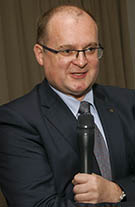
Roman Topór-Mądry, MD – President of the Agency for Health Technology Assessment and Tariff System. Doctor, specialist in public health, epidemiologist. Regional consultant in public health for the Małopolskie voivodeship. Deputy Director of the Institute of Public Health of the Faculty of Health Sciences at the Jagiellonian University Medical College. Participant and coordinator of many research projects, he worked in advisory teams to, i.a. the Ministry of Health, scientific societies, local governments, the European Commission, the World Bank. top
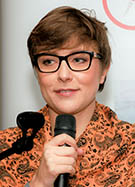
President of CEESTAHC Society, CEO of MedInvest Scanner, Vice President of HTA Consulting.In HTA Consulting, she is responsible for the strategic development of the company through research and services development, new product launch and marketing. Ms. Wladysiuk main and primary aim is to provide high quality information or data based on evidence based medicine or health technology assessment methodology not only in Poland but in Europe and Asia. Key role of her work is to improve patient outcomes through better healthcare decisions. In CEESTAHC she was responsible for the establishing and providing wide connection platform for discussion for all stakeholders in health care system. CEESTAHC mission is to improve the quality of health care systems value with the use of evidence. She graduatd Medical Academy in Lublin and MBA, economy in Kozminski Academy in Warsaw. She was Member of HTAi Annual Meeting in 2006-2008. top
Previous editions
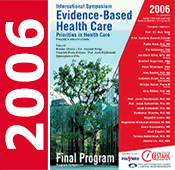
Zobacz edycję 2006
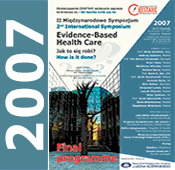
Zobacz edycję 2007
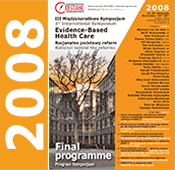
Zobacz edycję 2008
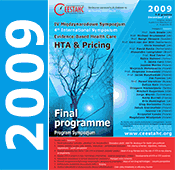
Zobacz edycję 2009
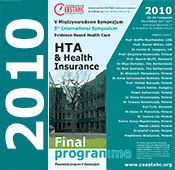
Zobacz edycję 2010
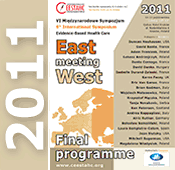
Zobacz edycję 2011
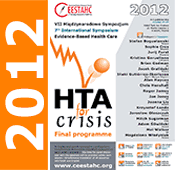
Zobacz edycję 2012
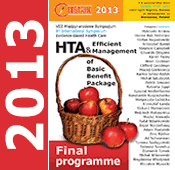
Zobacz edycję 2013
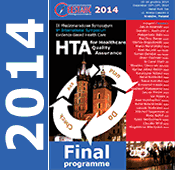
Zobacz edycję 2014
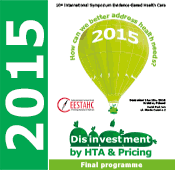
Zobacz edycję 2015
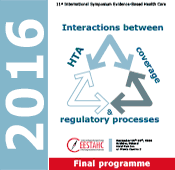
Zobacz edycję 2016
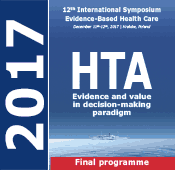
Zobacz edycję 2017
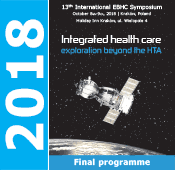
Zobacz edycję 2018
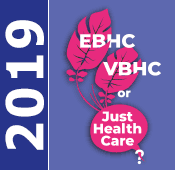
Zobacz edycję 2019
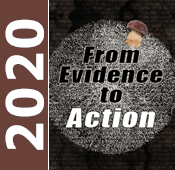
Zobacz edycję 2020

Zobacz edycję 2021
